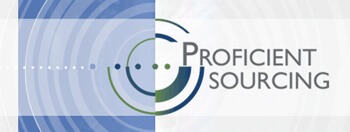What’s going on with large corporations these days? Some may be your customers or suppliers, so their motivations should be significant in your business plans. And to the extent this population includes OEM’s we are concerned.
It’s probable outside forces have tried to influence corporate behavior forever. But now, in a time of social media and instant and broad communications, perhaps this has become more important. Such things as ESG and CEI, if expanded into the supplier criteria, could have major impacts on small businesses seeking large company customers.
The point for us in the small business world is this: if the large corporate world is being influenced in non-financial ways, will these new criteria filter down to us in the supplier world?
Inquiring minds want to know!
ESG and CEI are 2 influencing factors that seem to be growing. Both have to do with progressive concept standards. ESG, which stands for environmental, social, and governance, attempts to establish standards for corporate behavior in these 3 areas. Once established, scoring determines to some extent the desirability of that company for investment.
We have commented on ESG scoring in these articles:
From this article:
Social scoring factors examine a company’s business relationships with employees, suppliers, partners, shareholders, and other groups throughout the supply chain:
- Are workers in factories abroad treated ethically?
- Do employees earn a living wage?
- Are facilities regularly inspected and safe to work?
- Can employees take leave when they are sick or for other personal reasons?
Social scores may also reflect charitable contributions, customer interactions, community impact and policy influence.
And under governance there’s a question if the company’s board represents diverse backgrounds and perspective.
Apparently, major funding sources, such as Blackrock, are introducing ESG standards as criteria for financial involvement. This situation is well beyond our wheelhouse, and there have surely been individual desires used by an investing entity to judge where to place their money. But some overall movement to drive companies to follow normally non-business objectives should be a concern to all.
So far, if we understand correctly, this ESG movement seems to directly apply to large corporations. However, those of us in the small business world may become pressured to follow these same ESG “rules” in order to do business with the larger company. Or perhaps the supplier’s ESG score, however determined, will have some effect on our new business prospects. And just who is establishing these standards in the first place?
Recently we heard of yet another scoring system, and on the website, a number of major companies have been “approved” by this scoring entity.
CEI, Corporate Equity Index, is the Hunan Rights Campaign (HRC) scoring system, and their 2022 report is here. The HRC is primarily concerned with LGBTQ+, so their index grades companies on how well these communities are supported.
One would suppose that a major company concerned about its CEI score would eventually try to find suppliers with appropriate policies. We don’t know if the HRC plans include trying to accomplish expanding into the supplier world, but it would seem likely.
If this is the case, then a small manufacturer’s diversity might become an issue for establishing a supplier relationship. Obviously, this could be a big problem if a machine shop is trying to find LGBTQ+ candidates for CNC machine operations, or perhaps some position with welding credentials.
Does any of this make good business sense going forward? We may have missed the boat with our interpretations and would welcome blog comments.


